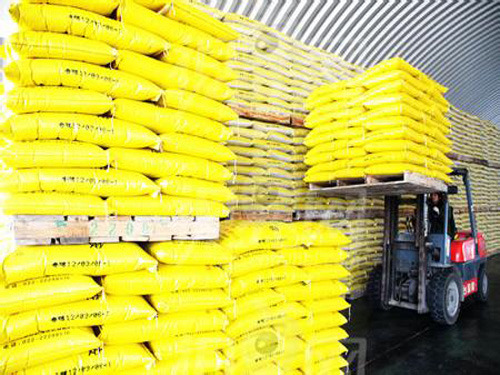
With the advancement of marketization, preferential policies enjoyed by fertilizer companies have been increasingly questioned. Recently, the relevant ministries finally threw out an opinion draft to restore the value-added tax for fertilizers, which was “weaned†to the fertilizer industry and put it on the agenda again. Is the timing ripe for the elimination of VAT?
The last fortress of Party A reform
After careful consideration, the marketization reform of the fertilizer industry has been advanced for nine years. In a sense, resuming the collection of value-added tax is regarded as the last bastion of this reform. After this step, it is considered to completely cut off the fertilizer industry. In July 2005, the National Development and Reform Commission proposed the "alternately canceled two canceled" reform goal, cancel the fertilizer price limit, cancel preferential policies, and directly supplement farmers. As of now, the prices of chemical fertilizers have been fully liberalized, and comprehensive subsidies for farmers' agricultural resources have already been implemented. These two goals have been achieved. In terms of various preferential policies, the management department has adopted a gradual reform strategy: the fertilizer tariffs have been raised year by year, some provinces and districts have already cancelled preferential tariffs, and the price of natural gas for producing nitrogen fertilizers has gradually been brought into line with the market. It can be said that the resumption of taxation on chemical fertilizers is already in vogue and has to be made.
The restoration of VAT and the cancellation of concessions are necessary conditions for establishing a healthy market operation mechanism for the fertilizer industry. For the fertilizer industry, short-term pain and long-term benefits are good. Companies of different natures and sizes can compete on the equal footing and rely on the market to force them to eliminate outdated production capacity, curb excess contradictions, and improve the operational efficiency of the industry and the inherent quality of the industry.
It is necessary to point out that the reason why the state gives preferential treatment to the fertilizer industry is to reduce the burden on farmers and ensure the supply of domestic chemical fertilizers. At present, the supply and demand of the fertilizer industry is imbalanced, and the excess contradictions are prominent. At this node, policies to promote marketization reform are introduced. Measures will not affect the domestic supply of chemical fertilizers, nor will it cause major fluctuations in fertilizer prices. The timing is therefore ripe.
Of course, the reform is a systematic project. At the same time as canceling the fertilizer preferential policies, it must also formulate corresponding supporting policies. First, the time limit for the export of chemical fertilizers will be abolished to create a favorable environment for enterprises to flexibly arrange production and operations. Second, direct subsidies for farmers will be increased, and the collected value-added tax will be transferred and subsidized to farmers to achieve the purpose of industrial support for agriculture.
Party B hastily cancelled the post-mortem
The formulation of policies for the fertilizer industry focuses more on the chemical fertilizer industry itself, but in agriculture, this is determined by the special nature of fertilizer as a support agricultural product.
Historically, it was precisely because of a series of preferential policies supporting the fertilizer industry that it attracted a large number of high-quality resources in the society to enter the fertilizer industry, resulting in a leap in the scale and quality of this industry, and made a Indelible contribution. From another perspective, if there is no such preferential treatment, the chemical fertilizer industry cannot develop so quickly. It is naturally impossible for agricultural production to have such achievements today.
In this sense, rashly canceling concessions will not only be the "milk" of the fertilizer industry, but will ultimately be the "milk" of agriculture and farmers. Some people proposed to return the VAT collected to farmers. This proposal seems to be feasible. However, due to the numerous loopholes in China's scattered small farmers and implementation of subsidies, this operation method has high administrative costs, and secondly, whether it can eventually be implemented. Subsidies must be given a big question mark to the peasants.
On the other hand, if the cancellation of the concession is only to promote the marketization of the fertilizer industry, then as we have seen, the fertilizer market is already in a state of full competition. Cancellation or non-cancellation will not change the industry. Market development process. What we should do is to establish a fair and transparent market environment and a law enforcement environment, so that counterfeiting will disappear.
Therefore, despite the unreasonable nature of the fertilizer industry's preferential policies, such as its unfair problems with other industries, and as it will affect local fiscal revenue, in the current situation, given that agriculture is China's top priority, Major events, the right to harm, and the proper support for the fertilizer industry are still relatively desirable.
Prepreg Carbon Fiber,Prepreg Fiberglass,Prepreg Material,Roving For Prepreg
Shandong Fiberglass Group Corp. , https://www.en-glasstex.com